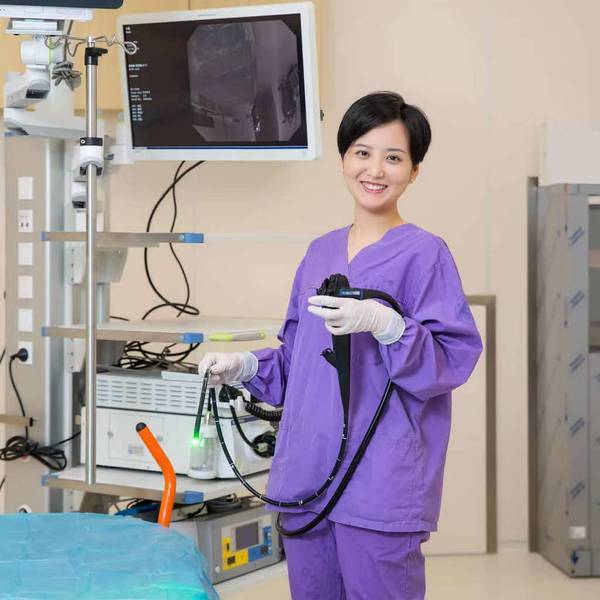How can a novice teacher make her class engaging?
While in class, her pace is agile and brisk, her eyes are glittering and lively, and her teaching is remarkably logical and meticulous with a string of typical cases. WANG Jiewei, a faculty member at the School of Medicine and a doctor at the First Affiliated Hospital of the Zhejiang University School of Medicine, clinched the grand prize in the finale of Zhejiang University Young Teachers’ Teaching Competition 2020.
She still has a vivid memory of her teachers, JI Feng and CHEN Chunxiao, explaining to a cohort of interns the process of jaundice cases to be investigated. Although it was merely a teaching visit to a patient, they explained feasible therapy for the patient, starting from rudimentary pathophysiological knowledge, and talked about relevant cutting-edge research. Their teaching was, so to speak, a walking internal medicine textbook. In the words of WANG Jiewei, they “could string together knowledge points in a focused and vivid manner.” At the finale of the Teaching Competition, WANG Weijie also inherited this time-honored “tradition of teaching. At the competition, she gave a mini-lecture about the diagnosis and treatment of gastrointestinal bleeding. First, she introduced the diagnosis of gastrointestinal bleeding with “five core questions”. Then, she adopted a step-by-step approach, illustrated by a specific case in which the initial treatment was administered depending on whether the patient’s condition was dangerous in terms of vital signs. Afterwards, she guided students to analyze at great length the “five core questions”, make an accurate diagnosis, identify the underlying cause, and prescribe the right medicine, so as to cultivate their ability to diagnose and treat gastrointestinal bleeding. Meanwhile, she also interwove some catchy phrases into her lecture in a dynamic and vivid way.

As a matter of fact, studying medicine is not WANG JIewei’s original aspiration. “I was as timid as a rabbit in my childhood. At the sight of human specimens, I would be scared. Thus, I refused to study medicine at that time. In fact, my childhood dream was to become a diplomat,” said WANG.
In 2003, SARS was raging during the National College Entrance Exam. Her mother, who was a nurse, signed up to become one of the front-line medical workers without the slightest hesitation. “There’s no great joy than to help someone and cure a patient,” said her mother. It was at that very moment that she decided to become a medical student at Zhejiang University.
The School of Medicine at Zhejiang University offers clinical internships during which medical students are required to observe medical practices in every department. In the Department of Gastroenterology, WANG Weijie observed how Prof. LI Youming discovered a case of early gastric cancer during routine gastroscopy and administered endoscopic treatment. While explaining the treatment, Prof. LI told his students that “physicians are equally important because finding a case of early cancer is equal to saving a family”. Because of these words, she made up her mind to choose gastroenterology.
After becoming a doctor, WANG Weijie is constantly recalling the lectures delivered by Prof. WANG Xuefeng from the Department of Respiratory Medicine. “Not only did Prof. WANG explain theories, but she also shared with us the stories about patients, through which she urged us to understand the psychology of patients and give more humanistic care.”
When studying at the School of Medicine, WANG Weijie was deeply touched by the course delivered by Mr. WANG Youchi. “His class was teeming with vigor and emotion. At that time, there was no computer in the classroom, but he could draw fascinating diagrams with ease on the blackboard. While teaching us to examine a patient by auscultation, he acted it out for us in a vivid way. This kind of teaching takes root in my memory,” said WANG Weijie.
“I feel genuinely grateful for each and every teacher who has imparted their professional expertise to me,” said WANG Weijie.